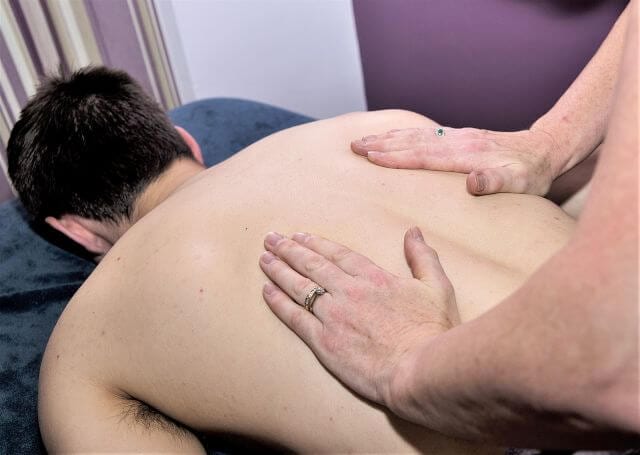Home / Treatments Offered / Manual Therapies / Massage
Chartered Physiotherapists are highly trained and skilled in soft tissue massage.
Massage is a “hands-on” treatment in which a therapist mobilises and manipulates soft tissues of the body, ie muscle, fascia etc to improve health and well-being. There are many different types of massage.
Usually carried out by masseurs and beauticians, frequently in spas, and as the name suggests it is a relaxing technique designed to de-stress and relax the body and mind.
Most people can do some form of self massage or massage on a friend or family member without harm.
If massaging at home the important things to remember are:


There are a huge number of benefits to therapeutic massage:
Although massage affects the body as a whole, it particularly influences the activity of the musculoskeletal, circulatory, lymphatic, and nervous systems.
MONDAY – FRIDAY
8am – 9pm
SATURDAY
9am – 2pm
SUNDAY
Closed